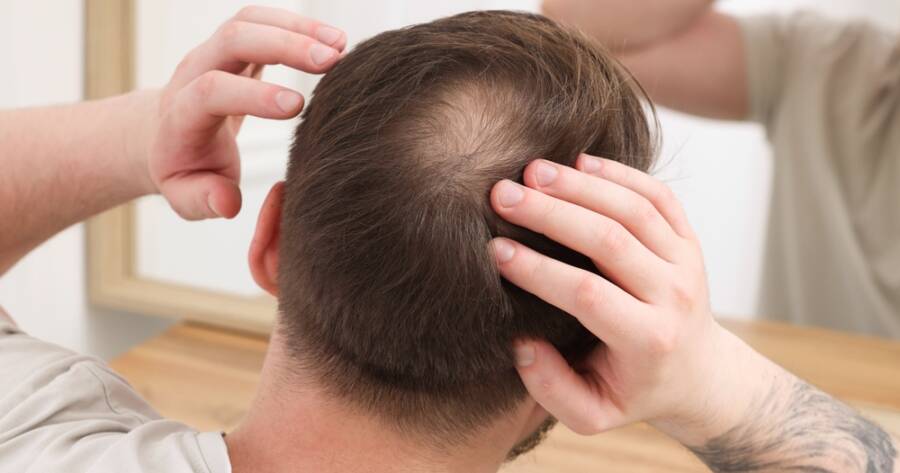Hair loss impacts more than appearance; it touches emotional well-being, driven by societal beauty standards. Understanding common causes, treatment options, and lifestyle solutions is vital for effective management. From topical and oral medications to innovative therapies like Platelet-Rich Plasma and hair transplant surgery, taking a proactive approach can help maintain both hair health and confidence.
Understanding Hair Loss and Its Emotional Impact
Hair loss is more than just a physical change; it deeply affects an individual’s emotional well-being. As people notice visible thinning, many experience significant distress due to societal standards of beauty and youth. These conditions are some of the common causes, with androgenetic alopecia being gradual and genetic, whereas telogen effluvium is often triggered by stress or medical conditions.
Many individuals who face hair loss find it beneficial to consult with healthcare providers, as a primary care assessment can often provide insight and lead to a consultation with dermatologists for specialized treatment options. These assessments can help target the specific type of hair loss and appropriate treatment plans.
Effective Hair Loss Treatments
A variety of treatments are available to combat hair loss. Among them, topical minoxidil is an FDA-approved option that requires daily application to thicken follicles and promote regrowth. For those who are sensitive to topical solutions, oral medications like finasteride and spironolactone offer alternatives. These options, though potent, require ongoing use to maintain results.
An innovative approach that continues to gain attention is Platelet-Rich Plasma (PRP) therapy. This involves injections of plasma from the patient’s own blood to potentially enhance hair growth and density by stimulating follicles. While promising, PRP therapy requires careful consideration due to possible side effects like pain, swelling, or temporary discoloration.
Alternative and Lifestyle Solutions
For those looking for gentler alternatives, laser light therapy offers a non-invasive option. Approved by the FDA for hereditary hair loss, this method has shown potential in increasing hair density, although further research is needed to determine long-term effectiveness and durability.
Lifestyle choices also play a crucial role. Utilizing wigs, hairpieces, or volume-adding products are viable temporary solutions to boost confidence without undergoing medical procedures. Conversely, these alternatives offer cosmetic benefits allowing individuals to regain a sense of control over their appearance and self-esteem.
The Role of Hair Transplant Surgery
When hair loss reaches late stages, hair transplant surgery becomes a viable option. Techniques such as Follicular Unit Extraction (FUE) or Follicular Unit Transplant (FUT) are used to restore a natural appearance, although they involve significant commitment and risk including possible infection or scarring based on chosen method. Notably, while FUT may provide larger grafts, FUE is preferred for minimizing visible scarring and is suitable for short hairstyles.
Overall, hair restoration can significantly improve mood and self-esteem by offering a more youthful appearance and enhancing personal perception and social interactions.
Benefits of Early Intervention
Initiating hair loss treatments early can be advantageous. Regimens like the Capilia Head First program offer personalized solutions to cater to all hair and scalp needs.
Employing sustainable, biodegradable products, these treatments aim to improve scalp health and promote regrowth by addressing underlying issues related to scalp conditions. For individuals experiencing mild thinning or temporary hair loss, early intervention can significantly improve outcomes, extending the duration individuals can maintain their natural hair in a healthy state.
Steps Towards Effective Treatment
Achieving successful results in hair loss treatment involves careful planning. Preparing for a doctor’s appointment with a list of medications and questions can help in attaining a comprehensive understanding of the available treatment options for every stage of hair loss. Consulting healthcare professionals for an initial hair loss assessment can identify the most appropriate medical or non-medical treatments to suit individual needs.
In addition to medical interventions, exploring clinical trials or new treatment advancements offers avenues for innovative and tailored solutions, potentially leading to significant improvements in hair health.
Learn More About Hair Loss Treatments
Understanding the various hair loss treatments available enables individuals to take proactive measures in addressing this often distressing condition. Comprehensive knowledge of medical, alternative, and lifestyle solutions provides a pathway to reclaiming not just hair, but also self-confidence and a positive outlook on life.
With advancements in treatments, hair loss does not have to define one’s self-perception. By staying informed and consulting healthcare professionals early, individuals can choose the most effective course of action tailored to their unique condition and needs.
Sources
Managing and Preventing Hair Loss
Benefits of Hair Regrowth Therapy
